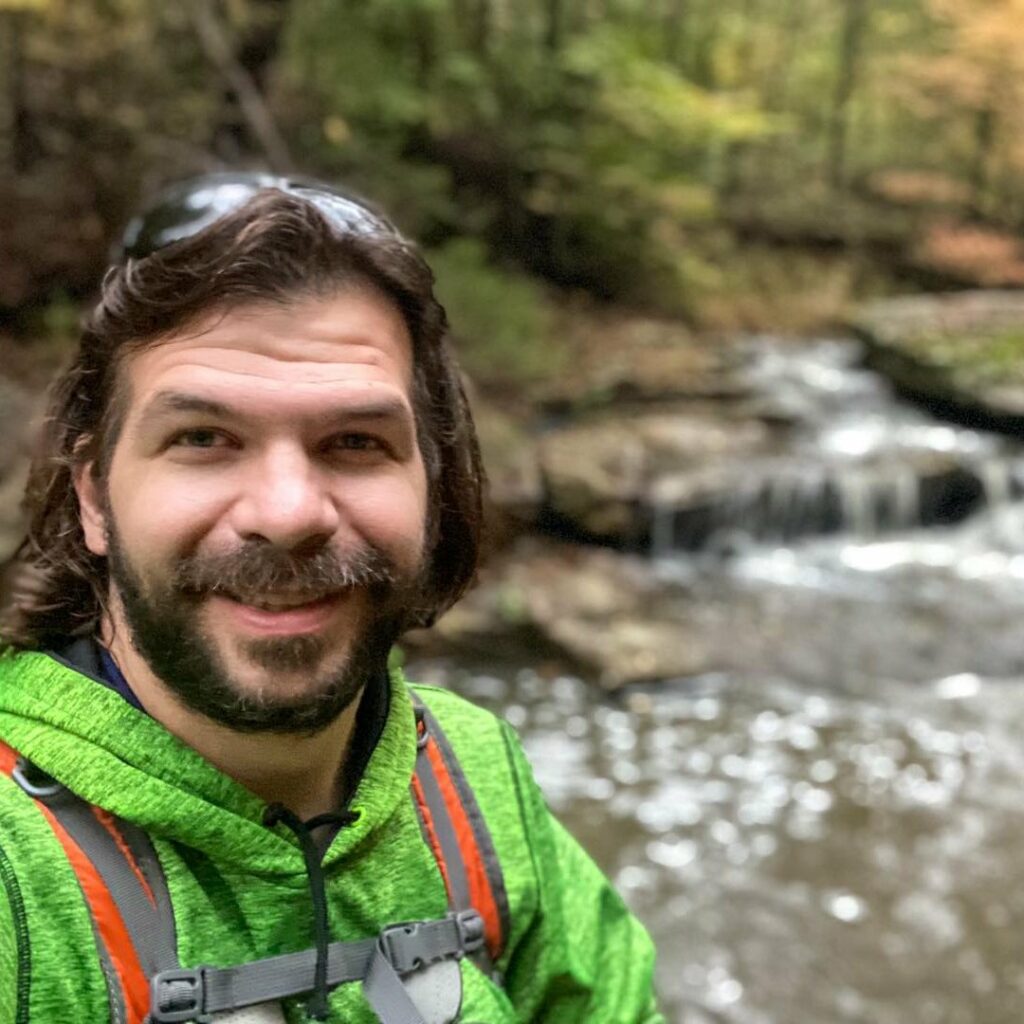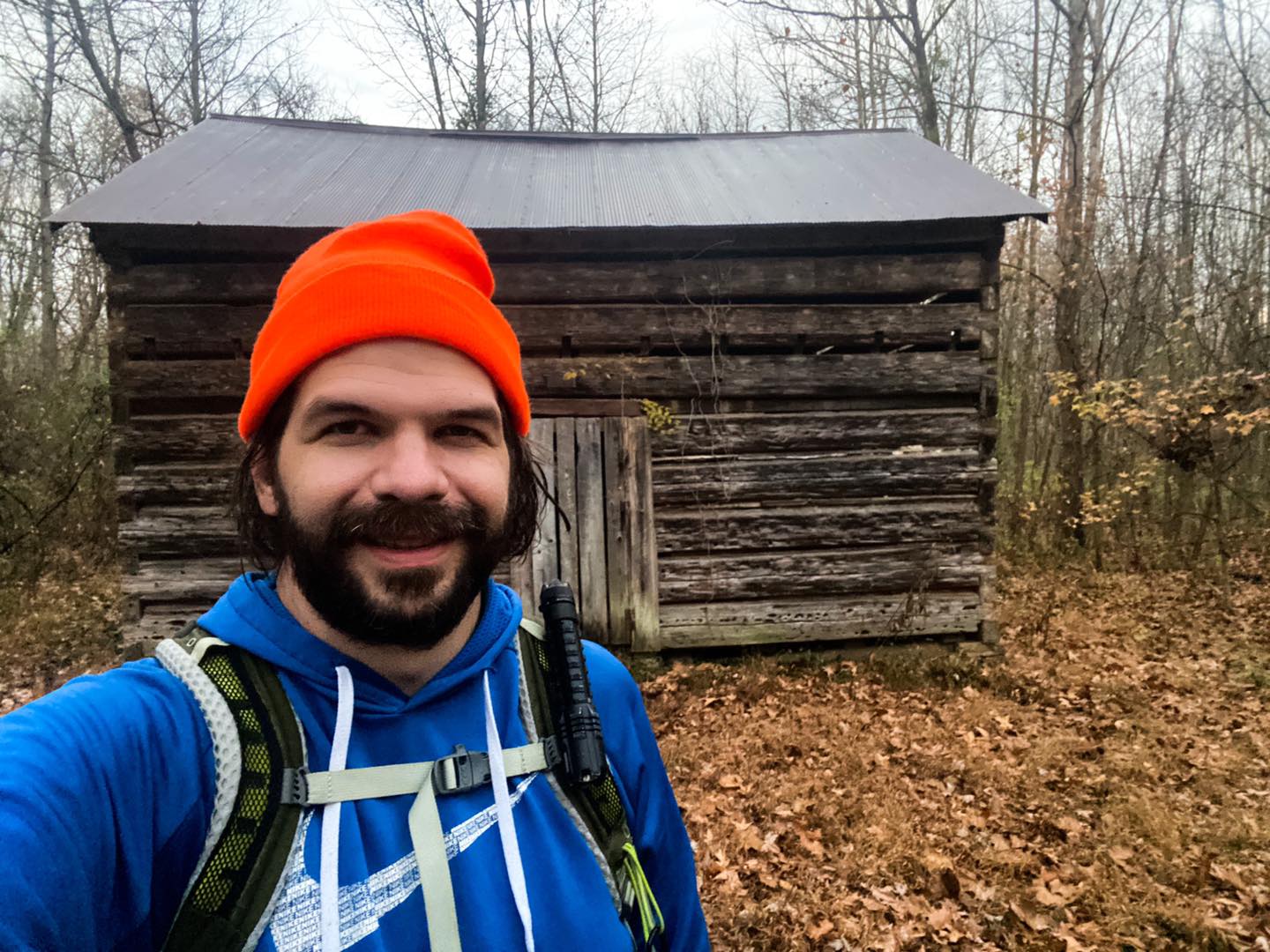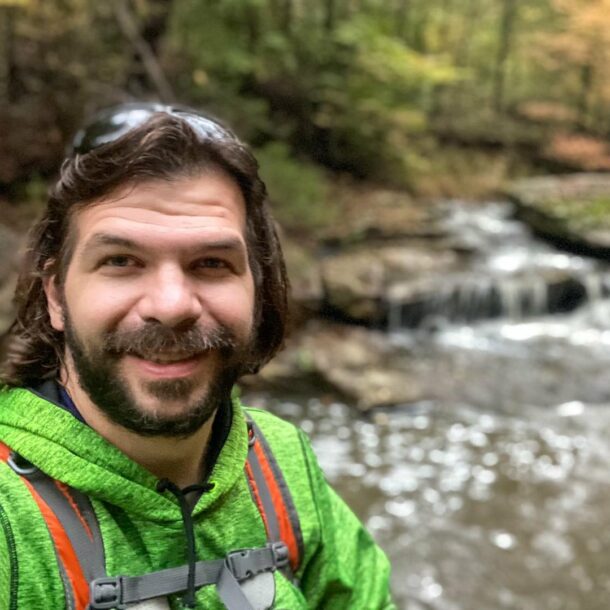10 Essentials of Hiking
in
the
Shawnee National Forest
There are ten essentials of hiking that you should familiarize yourself with and take with you on every hike in the Shawnee National Forest.
These 10 essentials of hiking will help to ensure you have a positive experience while out on the trail.
Neglecting to prepare for these essentials might mean a bad trip in the Shawnee.
Always remember that it’s better to be prepared than not to be prepared.
The 10 Essentials of Hiking in the Shawnee National Forest
The following 10 essentials of hiking will help you make the best of your trip while hiking the Shawnee National Forest or anywhere else.
1 – Durable and Comfortable Footwear
Durable and comfortable footwear is an important essential for hiking.
You want to wear appropriate footwear that is made for the conditions you’ll be hiking in.
Waterproof boots will be your best option if the trail is wet on a cold day.
Hiking in flip-flops or crocs is just asking for trouble.
The Shawnee is a rugged forest, not an easy National Park.
2 – Navigational Tools
You need to bring the navigational tools with you.
A compass, map, GPS, and hiking app are all essentials of hiking in the Shawnee National Forest.
You should have a compass and a paper map when electronic navigation fails.
But most importantly, you should know how to use your navigational tools.
If you need hiking guides for the Shawnee, I’ve created more than 50 of them.
3 – Water and a Water Filter
Bring plenty of water with you when hiking the Shawnee.
Water should be your heaviest gear. And no matter what time of the year, you should bring plenty of it.
You can quickly dehydrate in the winter as in the summer.
Make sure you bring a water filter with you, too. Just make sure you know how to use it first.
4 – Food and Snacks
Bring snacks on your hike, but you should also bring a meal.
If you get lost or become disabled and have to stay the night in the Shawnee, food will be a very nice benefit.
On my hikes, I bring trail bars, beef jerky, and a freeze-dried Mountain House meal. I have a pocket rocket stove with a small gas canister.
It’s important to stay fueled up and have an emergency meal when hiking in the rugged Shawnee.
5 – Layers and Extra Layers
You should wear appropriate outdoor clothing when hiking.
This is especially true during the cold winter. Layering up will help keep you warm while allowing you to shed layers if you start to get hot.
It’s a good idea to have some extra layers in a zip lock bag in your pack just in case you need them in an emergency.
Go with synthetic materials because they wicker moisture. Cotton will hold moisture in, which can be extremely uncomfortable when it’s cold outside.
6 – Emergency Survival Items
Bring some essential emergency survival items.
These essentials of hiking include a headlamp (with extra batteries), a way to start a fire, and a whistle.
The headlamp can help you see in the dark if you don’t make it out in time.
The fire starter can keep you warm, and the whistle can help you call for help if you need it.
7 – First Aid Kit and CPR Training
Take a basic first aid kit, but only carry what you need.
Don’t carry a trauma kit with you. Carry only the items you know how to use.
Only carry items you’d likely need to have while on the trail.
Get trained and certified in CPR. You might save a life one day with that knowledge.
8 – Hiking Tools
Bring a knife, a multi-use tool, and a folding saw with you.
The knife can be used for multiple tasks, from fixing gear to self-defense.
A multi-use tool is suitable for opening canned food, repairing gear, and other tasks.
A folding saw is great for cutting firewood if you need to get warm fast.
9 – Sun and Bug Protection
Bring plenty of sun protection gear with you for the elements.
This might include specific sun protection clothing, a hat, and sunblock lotion.
Bring plenty of bug spray with you, too. Consider spraying permethrin on your clothing and gear to mitigate tick bites.
Reapply sun and bug sprays as the day progresses, especially if you sweat a lot, as you can sweat it off your skin very quickly.
10 – Emergency Shelter
One of the most significant essentials of hiking is an emergency shelter.
A tent might be too heavy to carry.
Instead, consider a tarp system or even an oversized rain poncho.
If you need to create a quick shelter, these items will allow you to do this.
These 10 essentials of hiking are meant to help keep you safe while hiking the Shawnee National Forest or anywhere else for that matter. There might be other hiking gear that you can bring with you, too. But these ten items are a great starting point.
If you enjoyed this article, can you do me a favor? Can you subscribe to my newsletter for more great Shawnee National Forest hiking tips? It’s free, and I’ll even send you a free gift for subscribing!
Please Support Hiking with Shawn
Alrighty folks, I hope you have enjoyed this content. I provide it for free and it takes a while to create. If you would be so kind enough to support my efforts, you can do so by sharing this post with others, especially on social media. Be sure to subscribe to my YouTube Channel to see my latest videos, shorts and live streams. Follow me on Facebook, Instagram, Twitter and TikTok for unique content that you will only find on those pages. You might also join my Southern Illinois Hiking & Outdoor Resources Group on Facebook, too!
You can also support me by becoming a Patreon Supporter for as little as $3/month and you can cancel anytime (no contracts or catches). Patreons get access to extra features, exclusive articles, sticker packs, gifts and more. Consider buying official Hiking with Shawn Merchandise as another way to support me. I spend a lot of money on Hiking with Shawn and because of extremely high public land permit fees, I make very little money in return so everything helps.
Thanks again for checking out another one of my articles and until next time, I’ll see you on the trail!

Shawn Gossman
Founder, Hiking with Shawn
Howdy folks! My name is Shawn Gossman and I founded Hiking with Shawn. I’m an avid hiker, cyclist and outdoorsman here in the Shawnee National Forest. I was born and raised in Southern Illinois and never want to leave. Click here to learn more about Shawn Gossman



Ditto on the rain poncho and Permethrin. And consider bringing a bug net for your head they are light and don’t hurt the experience and can just be used when you hit a patch of Gnats, Biting flies and skeeters,